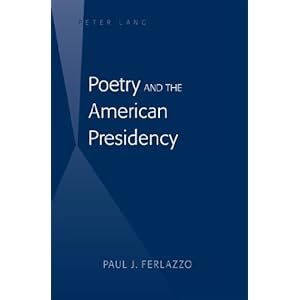Seeing Our Presidents in the Light of Poetry
 John Adams, our second president, always traveled with a book of English poetry and took comfort and pleasure in reading from it during his many long journeys. When his son John Quincy was a young boy Adams told him, “you will never be alone with a poet in your pocket.” John Quincy Adams became the sixth president of the United States and the author of over three hundred fifty poems.
John Adams, our second president, always traveled with a book of English poetry and took comfort and pleasure in reading from it during his many long journeys. When his son John Quincy was a young boy Adams told him, “you will never be alone with a poet in your pocket.” John Quincy Adams became the sixth president of the United States and the author of over three hundred fifty poems.
In fact, eighteen presidents from George Washington to Barack Obama wrote poetry, read poetry, and wrote about poetry. That fact may surprise many people. The story of poetry in the lives of our presidents has never been told.
For example, did you know that both Abraham Lincoln and Jimmy Carter wrote poetry? That Teddy Roosevelt was a serious reader of poetry and even wrote essays about poetry? In fact, TR was so interested in American poetry that he found the means to financially support several struggling poets? Woodrow Wilson, usually pictured as a serious and scholarly individual, was fond of limericks! He also wrote love poetry. So did George Washington. Harry Truman carried in his wallet an important poem, and Gerald Ford’s life as a child was changed by memorizing a poem.
Presidents have promoted the importance of poetry in the cultural life of a great nation. Herbert Hoover, our thirty-first president, understood the power of poetry. Although generally known as an engineer, he was also an avid reader of the world's great poets including Chaucer, Dante, Homer, and Tennyson, among others, and once said, “Perhaps what this country needs is a great poem -- something to lift people out of fear and selfishness.”
Why is poetry important when thinking about our presidents?
Taken together these are the personal characteristics of mind and spirit that are useful and necessary for appreciating poetry, and to a greater or lesser degree these eighteen presidents share in these important characteristics.
John F. Kennedy said this about the importance of poetry for our nation’s most powerful leaders: “When power leads man toward arrogance, poetry reminds him of his limitations. When power narrows the areas of man’s concerns, poetry reminds him of the richness and diversity of his existence. When power corrupts, poetry cleanses.” These are the practical benefits of poetry in the life of our presidents.
